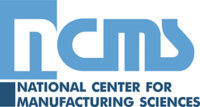CTMA Project #: 130917
Problem: The workforce at most depots, and particularly Fleet Readiness Center East, is nearing retirement age and a substantial loss of expertise is expected in the next three to five years. Capturing the experience of the current workforce will be critical to reducing the cost of bringing the new workers up to required levels of competence.
The rebuilding business is competitive and requires the facility to continually strive for improved quality cost savings. Thus, many workforce productivity improvements are required to maintain competitiveness.
Benefit:
- The use of the MMS saved 62 minutes out of a total 682 minutes for Stage I F-402-408B engine assembly. This results in a cost savings of $1,925/engine in labor and $73,440/engine in unavailable aircraft downtime for a total of $75,365 for this one model of engine at this one depot. Substantial savings would therefore ensue when MMS is fully employed across all services.
- The MMS is effective at capturing knowledge from experienced artisans in a manner that is useful for reuse by newer artisans.
- The MMS provides a significant reduction in engine assembly time, a savings of 9% which would increase to 15% should all local documentation transactions be incorporated.
Solution/Approach: The primary objectives were to conduct an assessment of the MMS technology used in the assembly of the AV-8B Harrier F-402-408B engine to include:
- An evaluation of the procedures for artisan tech data knowledge acquisition – i.e. reduction/increase in artisan certification time.
- An evaluation of the reduction/increase in engine repair/assembly time.
DOD Participation:
- U.S. Marines (Albany and Barstow Maintenance Centers)
- U.S. Navy (Fleet Readiness Center East)
Industry Participation:
- L3 Communications
- Didactics
- Intelliworxx
- UTC/Pratt & Whitney
- NCMS




